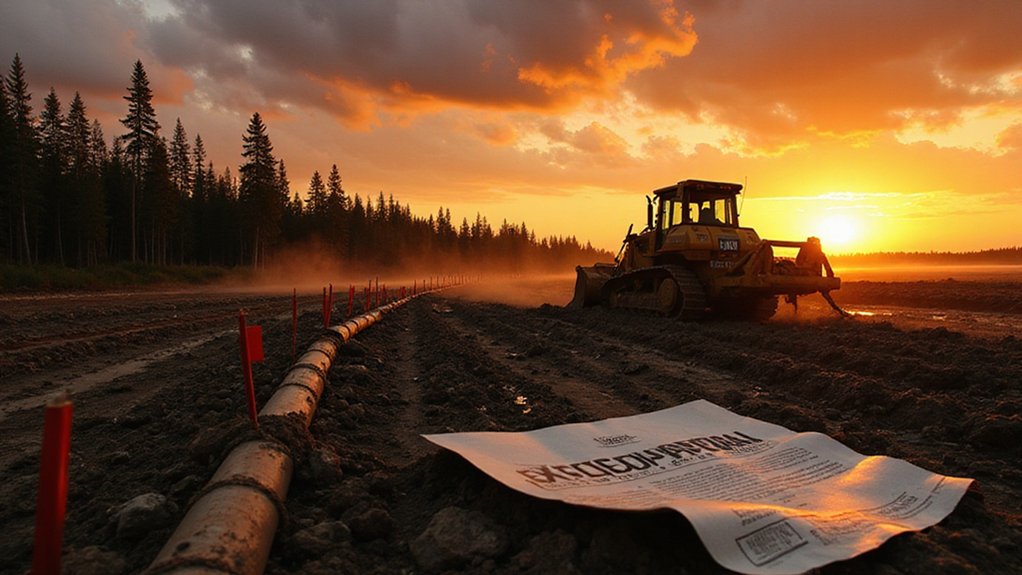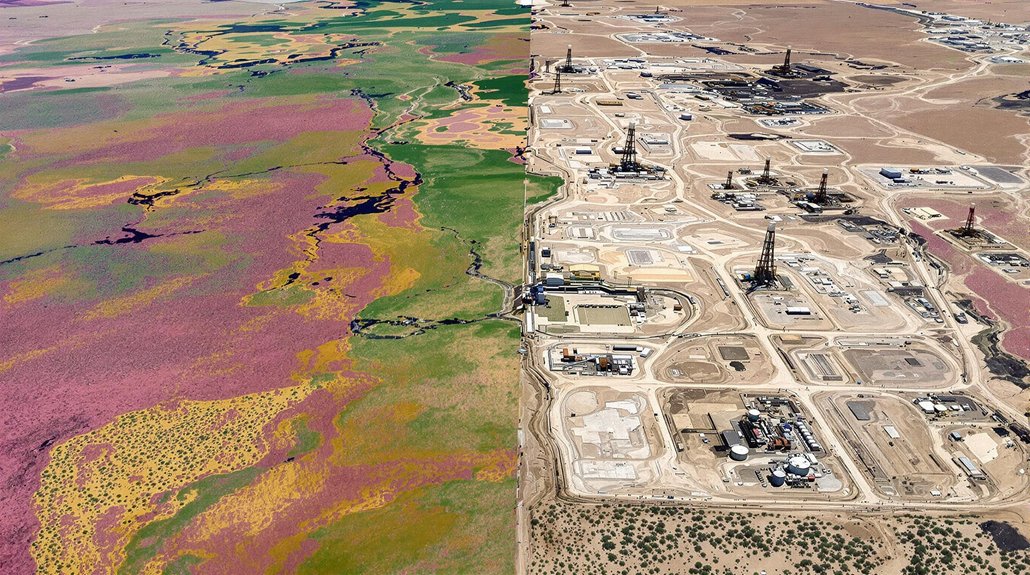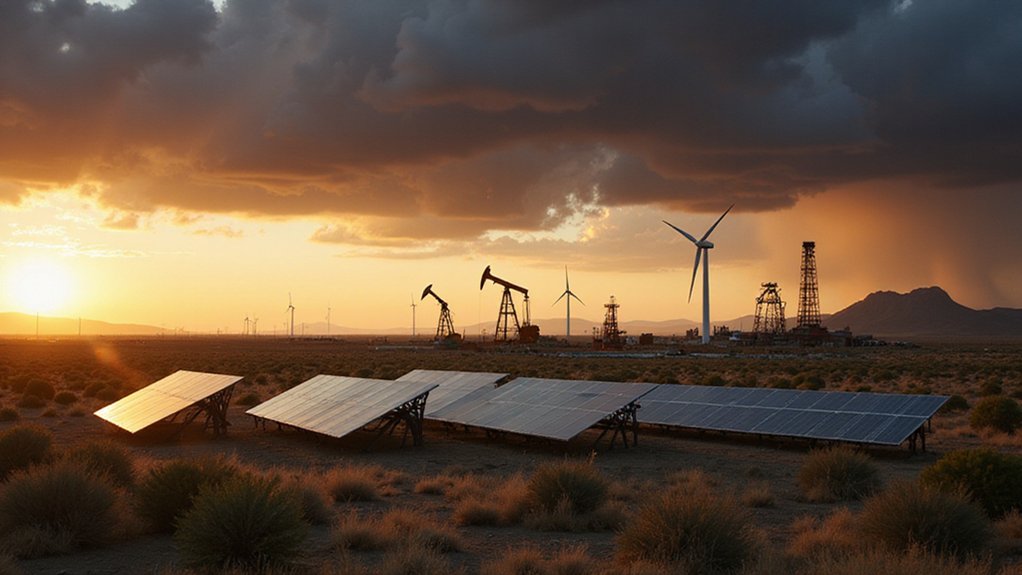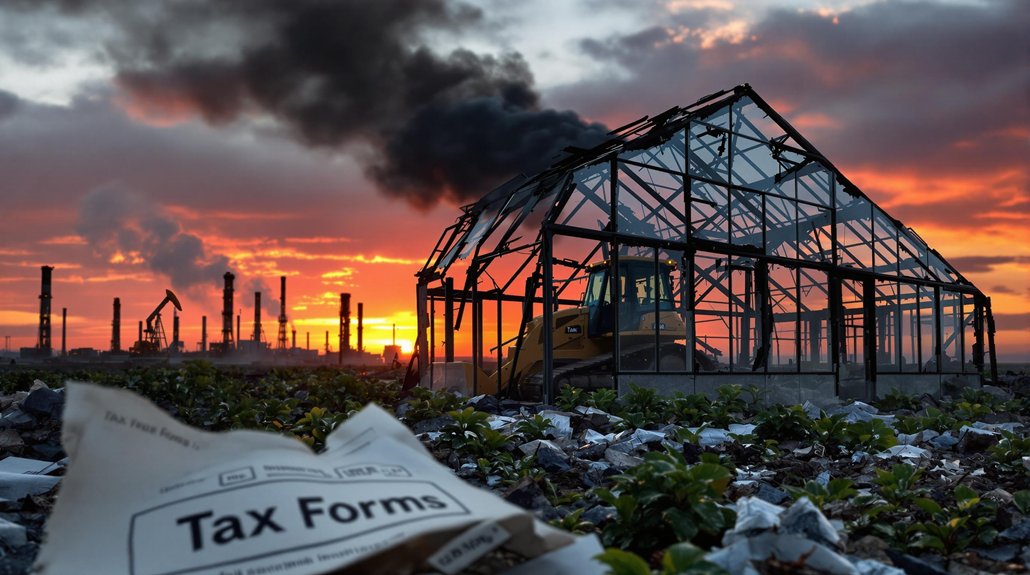Federal agencies are now pushing energy projects through environmental reviews at breakneck speed. What once took years now takes days—two weeks for “no significant impact” projects, one month for full impact statements. Fossil fuels, critical minerals, and even non-energy developments are benefiting. Public input? Nearly gone. Environmental protections? Minimal. Over 600 permit applications are racing through by early 2025. Communities and ecosystems will pay the price for this “efficiency.”
Federal officials are slashing environmental review timelines for energy projects across the nation. Where environmental assessments once took years, they’re now being crammed into mere weeks.
Fourteen days for projects supposedly having “no significant impact.” A month for full environmental impact statements. Yeah, you read that right. The same thorough reviews that normally take two years.
It’s all happening under the banner of a “national energy emergency” declared by the President. Convenient timing, no? The fast-track mainly benefits fossil fuels, critical minerals, and uranium extraction. Wind and solar? Not invited to the party.
Over 600 permit applications are lined up for the express lane in early 2025. Pipelines through wetlands, methane power plants, even some non-energy projects like gold mining and real estate development somehow made the cut. The system’s getting pretty flexible with its definition of “energy project.”
The “energy emergency” express lane welcomes pipelines, methane plants, gold mines, and luxury condos—because apparently, everything’s energy now.
Industry groups are thrilled, naturally. Less red tape means more profits. Conservationists are raising red flags about the environmental consequences. But who has time to listen when there’s money to be made?
Public participation? Nearly gone. Those pesky locals who might want a say about industrial projects in their backyards won’t get much chance to speak up. Comment periods are being slashed or eliminated entirely. Democracy at its finest.
The environmental risks are serious. Hundreds of permits threatening wetlands—nature’s water filters and flood controllers—are being rushed through.
Endangered species? Water quality? Ecosystem impacts? All getting the bare minimum look-over, if that. The expedited process drastically reduces inter-agency consultations required to protect federally listed species.
Legal challenges are brewing. Conservation groups aren’t taking this lying down. But by the time courts weigh in, bulldozers may already be rolling.
The irony is thick. In the name of energy security, we’re fast-tracking the very projects that threaten our environmental security.
Critical ecosystem protections built over decades are being bypassed in weeks. Progress, right?
Project proponents must submit written requests for each statute they want accelerated, with the Department of the Interior poised to approve applications for crude oil, natural gas, and coal priorities.
We’ve already seen this story play out with the Tennessee Gas Pipeline, where FERC approved a 122-mile pipeline despite significant community protests and environmental justice concerns.
References
- https://www.cbsnews.com/news/trump-drilling-mining-permitting-process-shortened/
- https://davisgraham.com/news-events/interior-fast-tracks-statutory-reviews-of-energy-and-mining-projects-citing-a-national-energy-emergency/
- https://www.eenews.net/articles/interior-plan-slashes-environmental-reviews-to-1-month/
- https://environmentalintegrity.org/news/trump-orders-hundreds-of-energy-emergency-permit-reviews-for-projects-that-could-damage-wetlands-and-waterways/
- https://www.eenews.net/articles/interior-moves-to-fast-track-energy-projects/









